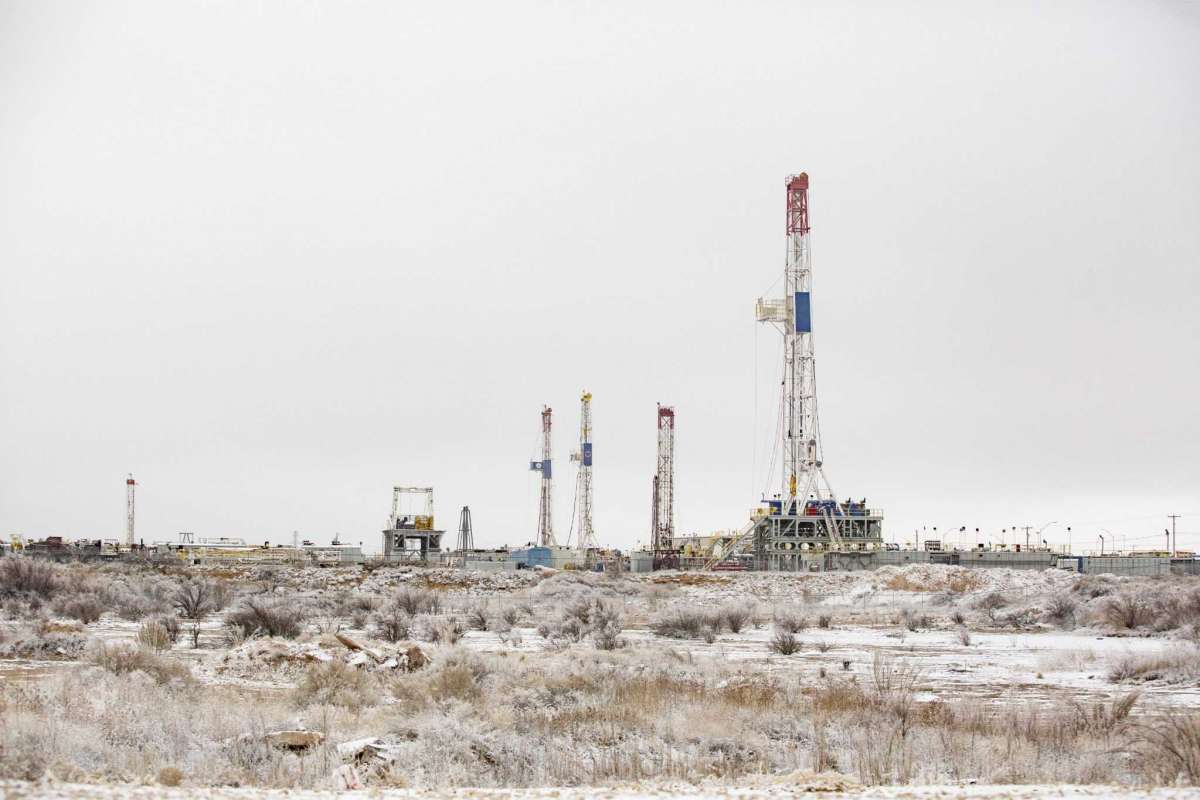 Unusually cold temperatures were forcing the closure of oil and gas operations across Texas Monday.
Unusually cold temperatures were forcing the closure of oil and gas operations across Texas Monday.
Refineries and pipelines up and down the Gulf Coast had to curtail or even shut down operations as temperatures fell into the teens and 20s, threatening to cut off fuel production from one of the world’s largest energy hubs.
Motiva Enterprises said due to “unprecedented freezing temperatures” it was shutting down its Port Arthur Refinery, which with a capacity of 630,00 barrels a day is the nation’s largest refinery.
“We are carefully monitoring weather conditions and will resume normal operations as soon as it is safe to do so,” the company said.
Exxon Mobil said it was shutting down its refineries and petrochemical plants in Baytown and Beaumont due to “freezing weather conditions, coupled with the curtailment of natural gas supplies.”
Lyondell Bassel, which operates a 264,000 barrel per day refinery in Houston, said power outages were forcing it to flare “excess materials” at multiple locations in the Houston area, resulting in a, “a visible flame or a rumbling noise.”
From Beaumont to Corpus Christi, between 3.3 and 3.8 million barrels per day of refining capacity along the Texas Gulf Coast was offline Monday afternoon, the research firm Wood Mackenzie estimated, warning that power outages were making analysis difficult.
ROLLING BLACKOUTS: Winter weather knocks out generators, power across the state
While some companies declined to comment on their operations Monday, media outlets reported the weather has a similar impact at other facilities in the region, including the shutdown of most of Marathon Petroleum’s refinery in Galveston Bay and curtailments on Kinder Morgan’s pipeline network.
Likewise, oil gas drillers in West Texas, facing single digit temperatures, were also being forced to suspend work Monday, leading some companies to curtail production, the Texas Railroad Commission said. Bloomberg News, citing unnamed traders and oil company executives, reported that the winter weather has cut output in the Permian Basin by 1 million barrels a day
Adding to difficulties were cold-related power outages in the Permian Basin, said Bjornar Tonhaugen, head of oil markets at Rystad Energy.
“This may result in intermittent production shut-ins, with a moderate impact on Permian oil production expected in February,” he said. “With that, the shape of the supply curve for the first half of the year becomes more backloaded and it might take more time for oil production from the US lower 48 states to move back to the north of 9 million barrels per day.”
The shutting of Texas’s energy industries drew concern from across the country.
In Austin, the Railroad Commission issued an emergency order Friday prioritizing natural gas supplies for homes, hospitals and other “facilities serving human needs.”
And Richard Glick, chairman of the Federal Energy Regulatory Commission in Washington, said the agency was in contact with grid operators in Texas and other states particularly hard hit by the cold.
“In the days ahead, we will be examining the root causes of these reliability events,” he said, “but, for now, the focus must remain on restoring power as quickly as possible and keeping people safe during this incredibly challenging situation.”

